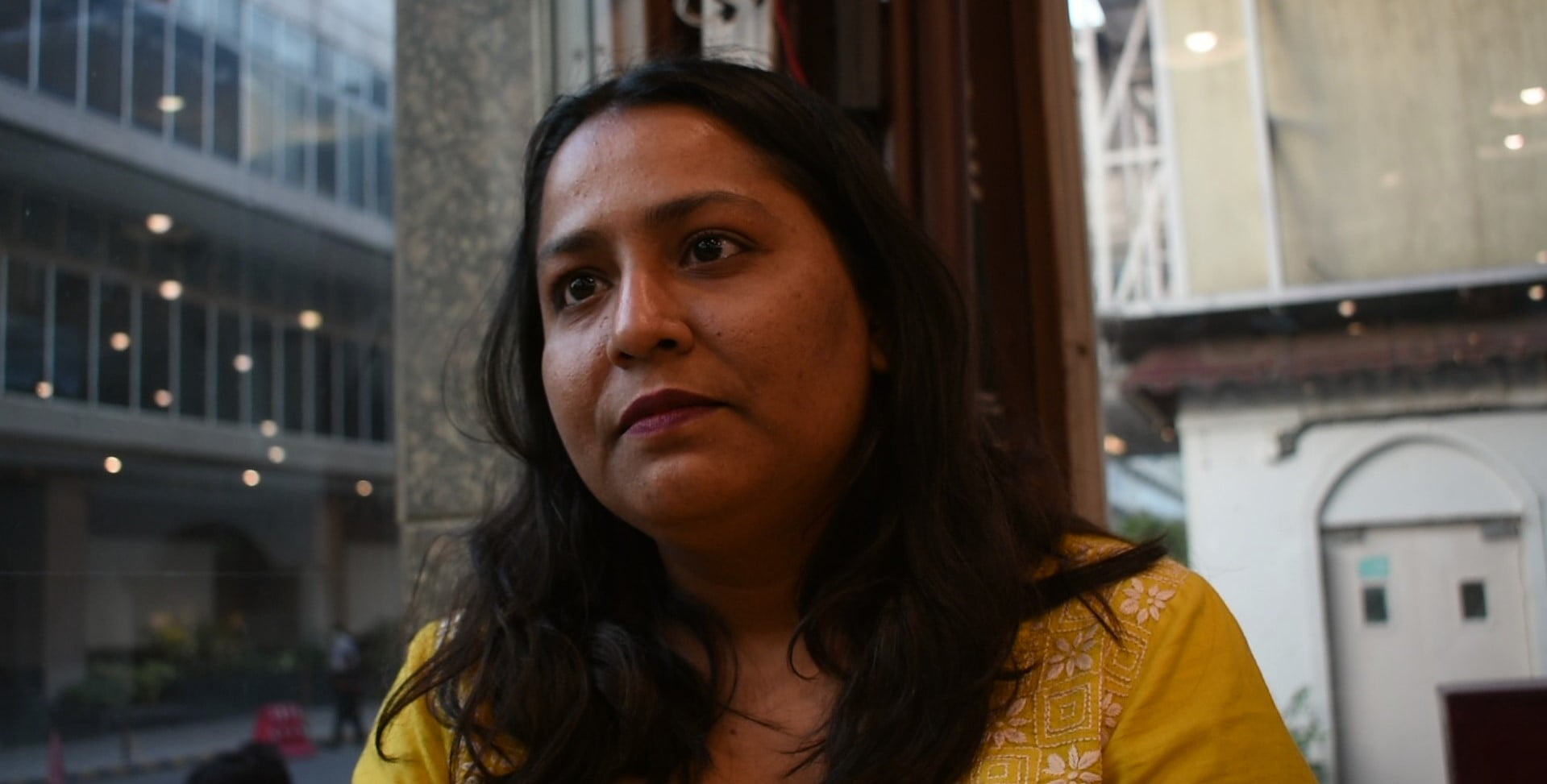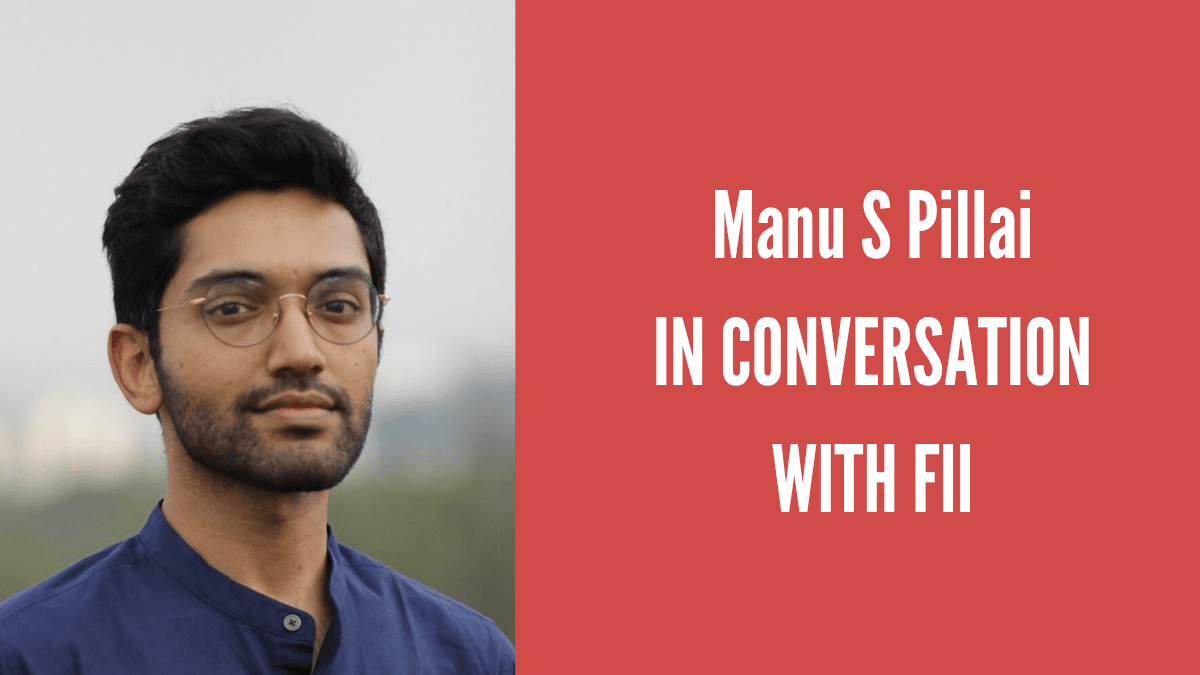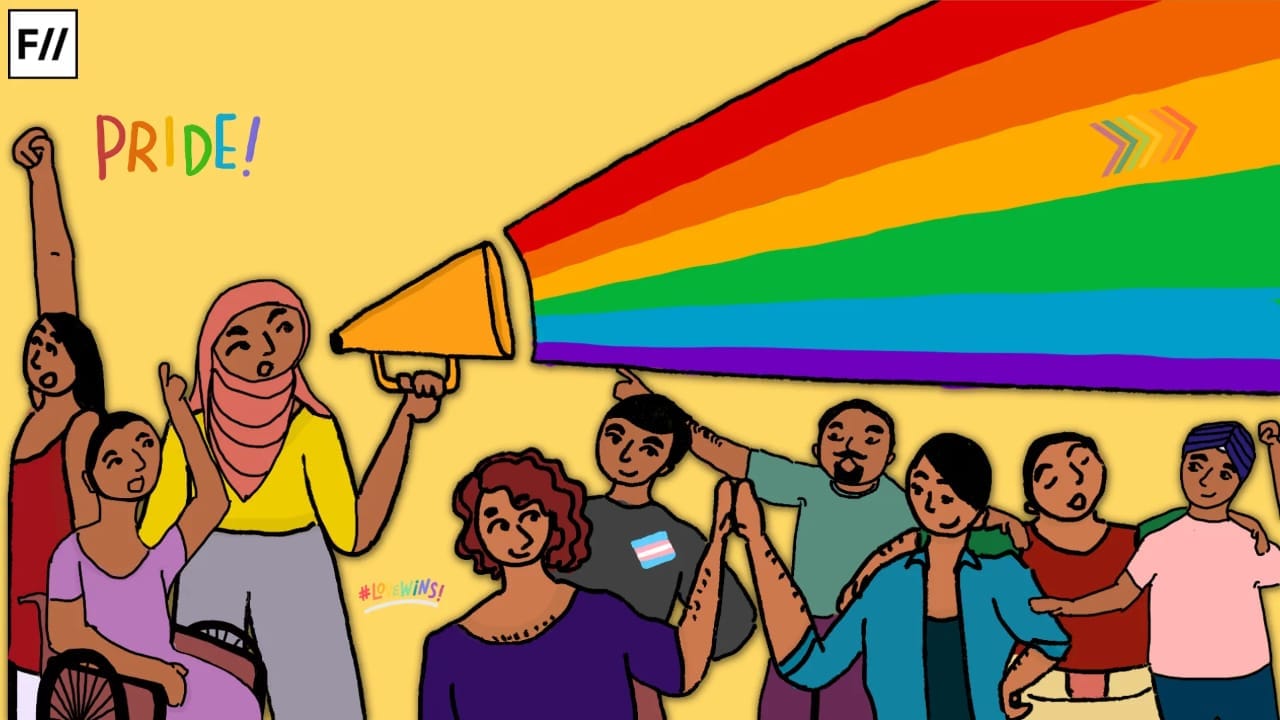Jyotsna Siddharth is an actor, anti-caste activist, feminist, and writer based in Delhi. She is the founder of Project-Anti-Caste, Love and Dalit Feminism Archive and a co-founder of Sive. She has a Masters in Development Studies and Social Anthropology and is a recipient of the Chevening Scholarship. She has constantly dealt with questions of caste and gender by conducting research using different techniques. Her writings have been published in different platforms including Round Table India, The Citizen, EPW, Savari, and The Hindu.
We had the privilege of talking to her about her work, interests, and life.
Kavya: What made you interested in the questions of caste and gender? Can you tell us about how your early years influenced your work in these fields?
Jyotsna Siddharth: To begin with, I come from the community. I was born in Delhi. My mother (Rajni Tilak) is a known Dalit feminist and activist in North India. I think from my childhood I have seen her dealing with issues of caste and gender discrimination. At the same time, a lot of activism has been in the family. I have grown up with that. That has been the sort of exposure that I got.
But the first time I experienced the whole issue of caste was when I went to take admission in Delhi University. At that point, I wasn’t even sure if I was doing the right thing to apply in the reserved category. I was reluctant, I was scared. There was also a certain sort of disassociation; the belief that once you put your caste out there you have to own it. And I think at that point, I didn’t take or own my identity because I was only 17. So this was the first time when I realised that I can use my caste and reservation is there for a reason.
The second time I got exposed to caste was during my relationship. I was with an upper caste man and it was a long term relationship. I think that was the first time a lot of issues around caste came up: what caste are you from, how you look, what are you supposed to wear came up. That was the first time it actually hit me that there are things, especially your caste, which never change. And there will always be people to remind you of that and put you in your position to tell you that this is who you are. This experience told me that no matter how educated, aware, sensitive you are there are certain things that will never change about you. And one of those things is caste.
Kavya: Can you tell us about Project Anti-Caste, Love? What was the motivation behind it? What has been your experience with the project so far?
Jyotsna Siddharth: After this relationship ended, I was not very sure about what to do with this experience. It took me a lot of time to theorise it. But when I was applying for my M Phill I thought that I should get deeper into this. I wanted to understand what are the linkages between caste and relationships, how does it feature, and what does it tell us about our social understandings of marriage and courtship. I did my research but I did not submit my thesis because I went for further studies. So that research is still lying with me and I plan to use it. But I think that was the first time when I started theorising and conceptualising this whole issue of intimate relationships and how caste forms our understanding.
After that, I started thinking about taking this topic and going to colleges to do some workshops. So there was a Dalit Women Conference in Pune where I was invited to do a talk and I thought about doing a workshop instead. So I did a one hour workshop with young Dalit women to talk about their experiences of caste. And I thought it was very interesting because a lot of things came up which I wasn’t aware of, while certain things I was aware of came up as well. And this led to a very interesting process of engaging with young children.
After that, I got invited to Jesus and Mary College to do a similar workshop. I did that as part of Sive which I co-founded with Vidisha. And that workshop resulted in starting the project called Project-Anti-Caste, Love. I thought let us think through different mediums that can be adapted to essentially say that any romantic experience in India essentially is a caste experience. The project connects dots with allies to build solidarities because everybody has some sort of romantic relationship or experiences for that matter and that is never devoid of our caste notions.
To be aware of one’s own position and of your partner, I think that’s crucial. This enriches the kind of conversations you have with your partner.
Kavya: You recently also started the Dalit Women Archive Project. Can you tell us something about that?
Jyotsna Siddharth: Dalit Women Archive is now called Dalit Feminism Archive because I realised that Dalit feminism needs a broader discussion than just talking about Dalit women. Of course, they are the primary focus, but we have to think about how to bring in debates with Dalit men and Dalit queer and highlight their issues. My mother has been collecting a lot of material on Dalit women and their writings. She has a library which already there. But I wanted to take that a step ahead. I wanted to build a resource centre on Dalit women. As part of the project, I am doing in collaboration with FemCylopedia and Karuna, who are both illustrators, I am putting out the achievements and progress of Dalit women. But I believe in the future this will expand to include writings, poems or any sort of material that talks about Dalit feminist discourse.
Kavya: You say that any romantic experience in India is essentially a caste experience. Can you elaborate upon that? What roles do different social identities play in romantic relationships?
Jyotsna Siddharth: What happens is that when you are in a relationship with somebody, your social upbringing and the notions that you have grown up with seeps into your relationship. Whether you belong to the dominant caste or the marginalised caste Brahmanical patriarchy and Brahmanical mentality governs and becomes the norm in relationships. It dictates your life, how you view things, and how you are conditioned. For example, stepping out of the house after a certain time is not okay, being dark is not okay, not being skinny is not okay because all of this doesn’t fit into the Brahmanical realm of how beauty is defined or how they define family. I think it becomes the lens through which we look and live. And for me, it becomes the paradigm to question relationships and our identities. And that is why I say that any romantic experience is a caste experience.
Kavya: In your opinion how can romantic relationships become more, for the lack of a better term, equal?
Jyotsna: Of course I don’t have a formula or a right answer to this. But I think a few things are very crucial. One is to question one’s own privilege, entitlements, where one is coming from, and the things one has received by where one has been born and raised. I think that is the first step. To be aware of one’s own position and of your partner, I think that’s crucial. This enriches the kind of conversations you have with your partner. It allows you to put in more thought into your communications. For example, if you or your partner has a history of depression and you have the knowledge of their social position, then it helps you understand that the depression can be rooted in where and how the person is raised, what family the person is coming from, and what has been their experience. Because not all depression might stem from loneliness, some might also stem from what caste discrimination a person has gone through. I think these intricacies do not come out in our conversation. So to be aware of these sensitivities is important. Because after all when you are with somebody you are not just with one person, you are with their entire social-political-economic context.
Kavya: You have participated in plays during your school and college years. You have also done two productions with the feminist theatre group called Pandies. Can you tell us about your relationship with theatre? Where do you think of taking it in the future?
Jyotsna Siddharth: I think theatre as a tool is very interesting. It is called the tool for the oppressed. You can use theatre to challenge ideas and to have uncomfortable conversations. Also when you are in the theatre space, you have the complete freedom to be whoever you want and that gives you the freedom to challenge yourself and to question your own biases. If theatre is used as a tool to work with other people it eases out a lot of conversations.
So in one of the workshops, I did in TISS as part of Project-Anti-Caste, Love, I used some of the theatre techniques. There was a simulation exercise that we did in which I asked participants to walk around the room with their eyes closed, feeling the presence of the room, and of each other. And then I started narrating them a description of a character, which was essentially of the marginalised community. And while I was narrating the character, the people were supposed to respond to that imaging that they were the character. The exercise worked very well because at the end of it people actually said that they felt it and they realised that their mind was full of particular ideas. It made me realise that theatre as a technique is very interesting because it is one of the ways in which you can take a person’s reality and feel it. And it can open up different conversations.
Also read: On Babasaheb And Filmmaking: In Conversation With Jyoti Nisha
Kavya: What are the different methodologies that you have adopted in the past as part of your research? What have been some of the interesting findings?
Jyotsna Siddharth: For Project-Anti-Caste, Love, one thing I am doing right now, which is also an ongoing process and I don’t know when it will end, is a series called Dating App Series where I have taken snapshots of people’s profiles in Tinder, where I have seen indicators of caste markers. So if you visit the Instagram page of Project-Anti-Caste, Love you will see a series of photographs of the same. I am thinking that maybe once I have a good number of these I can put up an exhibition for people to engage and see the kind of caste material that exists in public.
Second, as I have mentioned, is the workshops that I have done with college students and that has really worked.
The third thing is the interviews that I have conducted of people which I am in the process of transcribing. Those interviews I will be sharing through Instagram or a blog. In them, people have spoken about their romantic experience and how caste has impacted their relationship with their families, lovers, and themselves. I think it is a rich primary resource which is very hard to find because people usually do not talk about such things. And I think it can be used in many ways.
Whether you belong to the dominant caste or the marginalised caste Brahmanical patriarchy and Brahmanical mentality governs and becomes the norm in relationships.
Kavya: What are the different caste and gender experiences that you went through and observed in the educational institutions that you were a part of?
Jyotsna Siddharth: Fortunately, I have been in spaces where I had the freedom to express my views. But I can speak about the experiences of many others that I have heard. We talk about Rohith Vermula and what happened with him. I think that is a stark example of the discrimination that goes on. And I think medical institutions like Maulana Azaad and AIIMS and even IITs and IIMs have been infamous for caste discrimination. There has always been discrimination against the Dalit and Adivasi students. There are explicit instances but there are also implicit instances where no one is overtly telling you anything but you still feel discriminated. This can be in the form of not getting scholarships on time or not being given a chance to speak up.
Kavya: How do you view the current feminist movement in India?
Jyotsna Siddharth: This is a very simple question but it is also very complicated for more than one reason. One is the political atmosphere of our country and around the world today. There is this rise of state control, border control, fascism, and the right-wing Hindutva ideology.
Second, I feel that feminists and people, in general, are not questioning religion enough. Don’t get me wrong, I agree that practising religion and having faith is completely an individual’s discretion. But questioning why religion and traditional practices exist in families, communities and the state is not being questioned. That for me is deeply problematic. Because when you are not doing that you are not questioning caste and you are not questioning the fundamental discriminatory system that has been in force. If you are not questioning religion you are not really moving forward.
I do feel that intersectionality has sort of seeped into feminism, not completely, but to a certain extent. I acknowledge this and I think it only has to go forward from here. It is interesting that though it has taken so many years, these conversations are finally happening.
Another issue that I think the feminist movement is grappling with is how to address and look into the questions of LGBTQI and sexual minorities. Whether to consider that in the ambit of feminist social movements or to have that as a separate fight. Because even though these fights intersect, they are also very different.
I also feel that feminism continues to be very elitist. Except for the few organisations that are working in the grassroots, I think feminism has not been able to form a connect with villages. If you pick up any random village in India there is a chance that women there might not be aware of the feminist movement. So I think feminism is still largely urban and semi-urban specific.
You can watch snippets from the interview in this video:
Also read: #DalitHistoryMonth2019 Event: An Evening Of Remembrance, Resistance And Resilience
FII thanks Jyotsna Siddharth for taking out time to do the interview.
About the author(s)
Kavya is currently pursuing her MA in Media and Cultural Studies from TISS, Mumbai.




